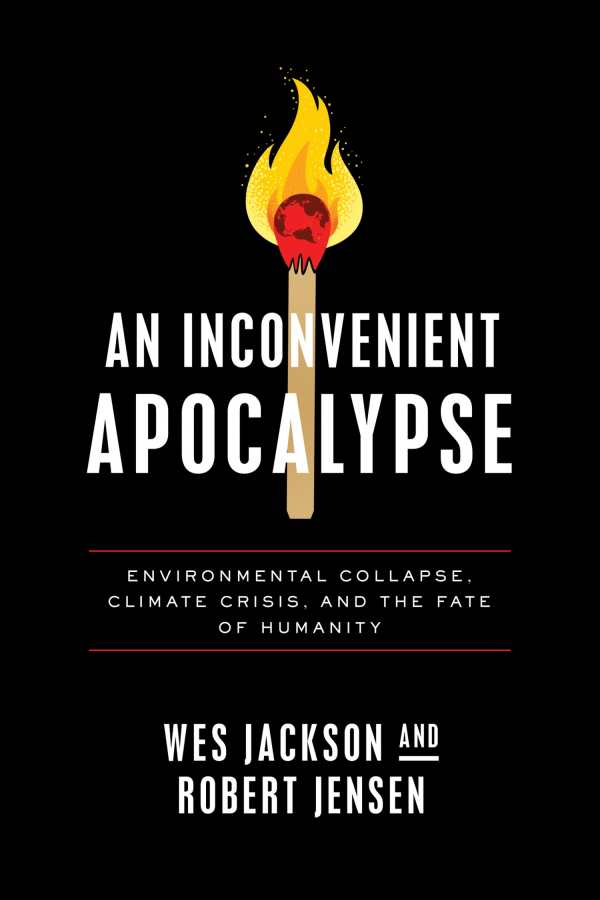An Inconvenient Apocalypse
Environmental Collapse, Climate Crisis, and the Fate of Humanity
- 2022 INDIES Finalist
- Finalist, Ecology & Environment (Adult Nonfiction)
“We are all apocalyptic now”: such is the solemn, realistic conclusion that Wes Jackson and Robert Jensen reach in An Inconvenient Apocalypse, a hard-hitting philosophical reckoning with climate breakdowns, and with the social collapses that they may entail.
Blunt and self-deprecating, Jackson and Jensen are aware of their privilege and conventional Midwestern upbringings. They identify as “two old white guys … living pretty comfortably” as “progressive hicks.” They take it as read that governments will continue to ignore scientists’ dire warnings, and that “multiple cascading crises” will end society as people know it. Thus they lay out the immediate challenges and discuss system-level changes that will help people to cope. From the title onward, their approach is bold and methodical, and their treatments of each issue are concise.
The book’s focus on ethics is backed up by thought experiments and musings on the importance of storytelling for resisting celebrity and consumer culture and mulling human meanings anew. Jackson and Jensen acknowledge that some of their suggestions fall outside of the “Overton Window,” which refers to policies that the general populace will accept as legitimate. Instead, the changes needed will be rapid and radical, such as moving away from car ownership and swapping national and city-level governance for smaller, more flexible communities. And while the book’s outlook is secular, it also mines Christian traditions for cogent metaphors. For instance, human hubris has led to a fall that requires grace—sought, in this case, from “the ecosphere,” and taking the form of continued life. An analogy with the biblical concept of a “saving remnant” envisions survivors rebuilding in “a future defined by ‘fewer and less.’”
Climate disasters may render hope for the future tenuous, but the philosophical book An Inconvenient Apocalypse asserts that working toward social justice is still purpose-giving.
Reviewed by
Rebecca Foster
Disclosure: This article is not an endorsement, but a review. The publisher of this book provided free copies of the book to have their book reviewed by a professional reviewer. No fee was paid by the publisher for this review. Foreword Reviews only recommends books that we love. Foreword Magazine, Inc. is disclosing this in accordance with the Federal Trade Commission’s 16 CFR, Part 255.

